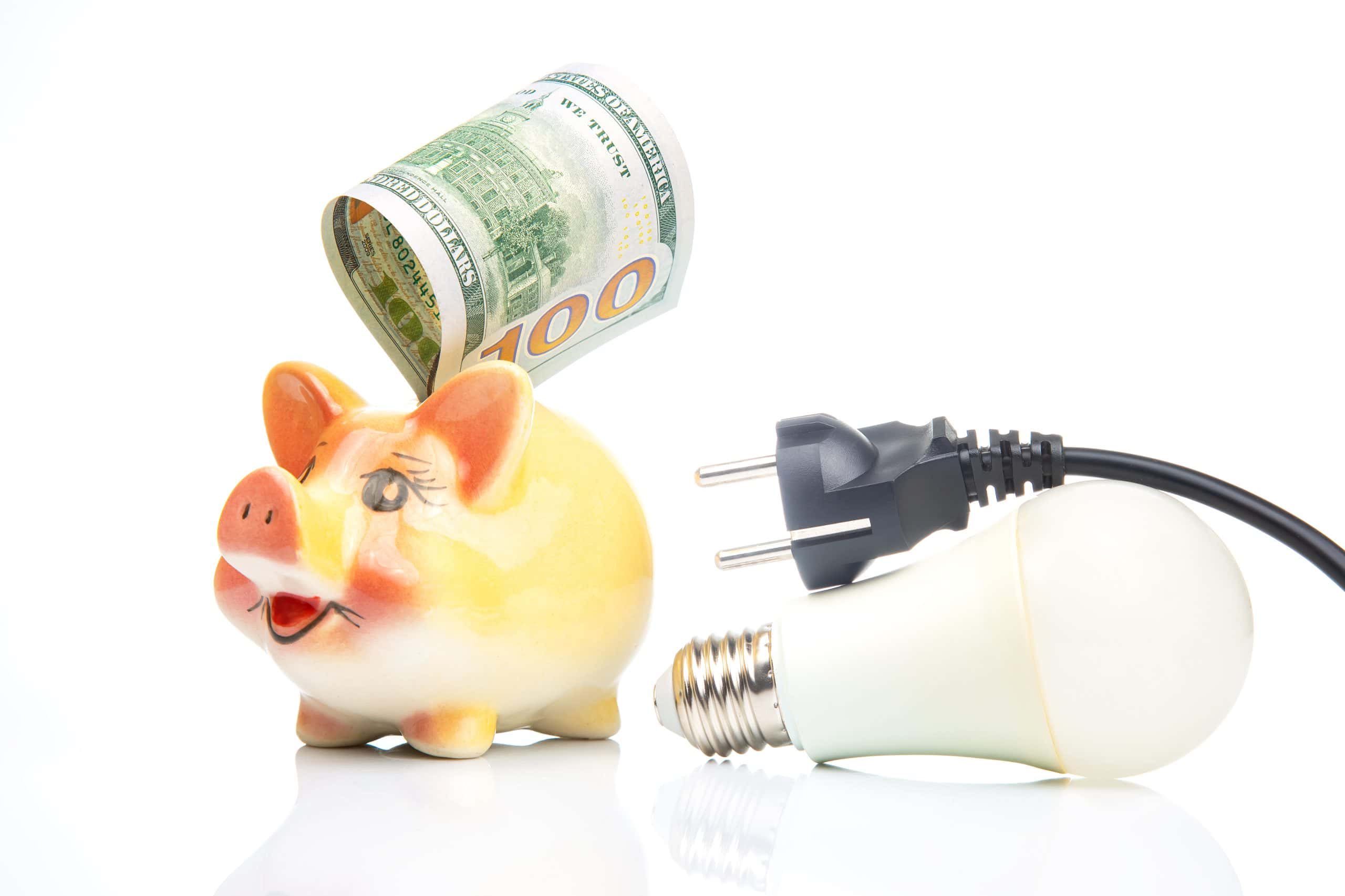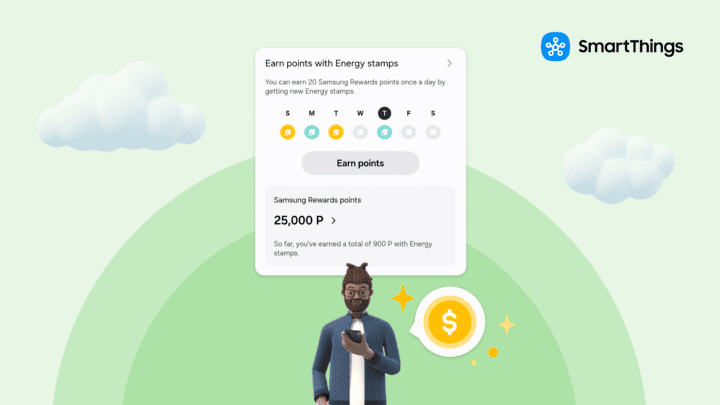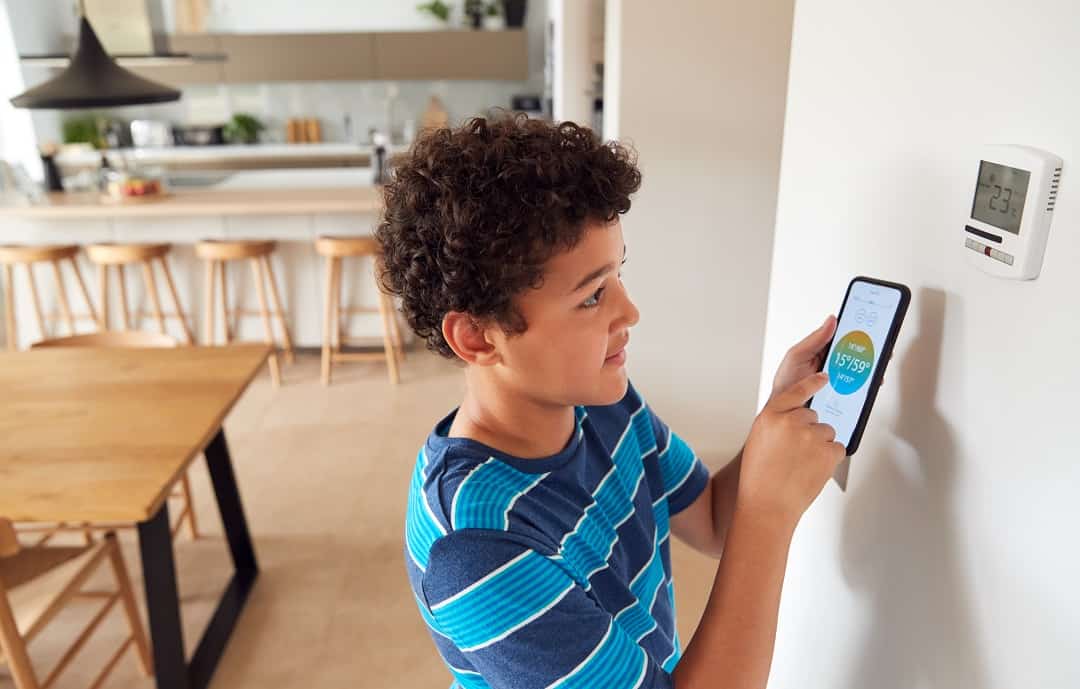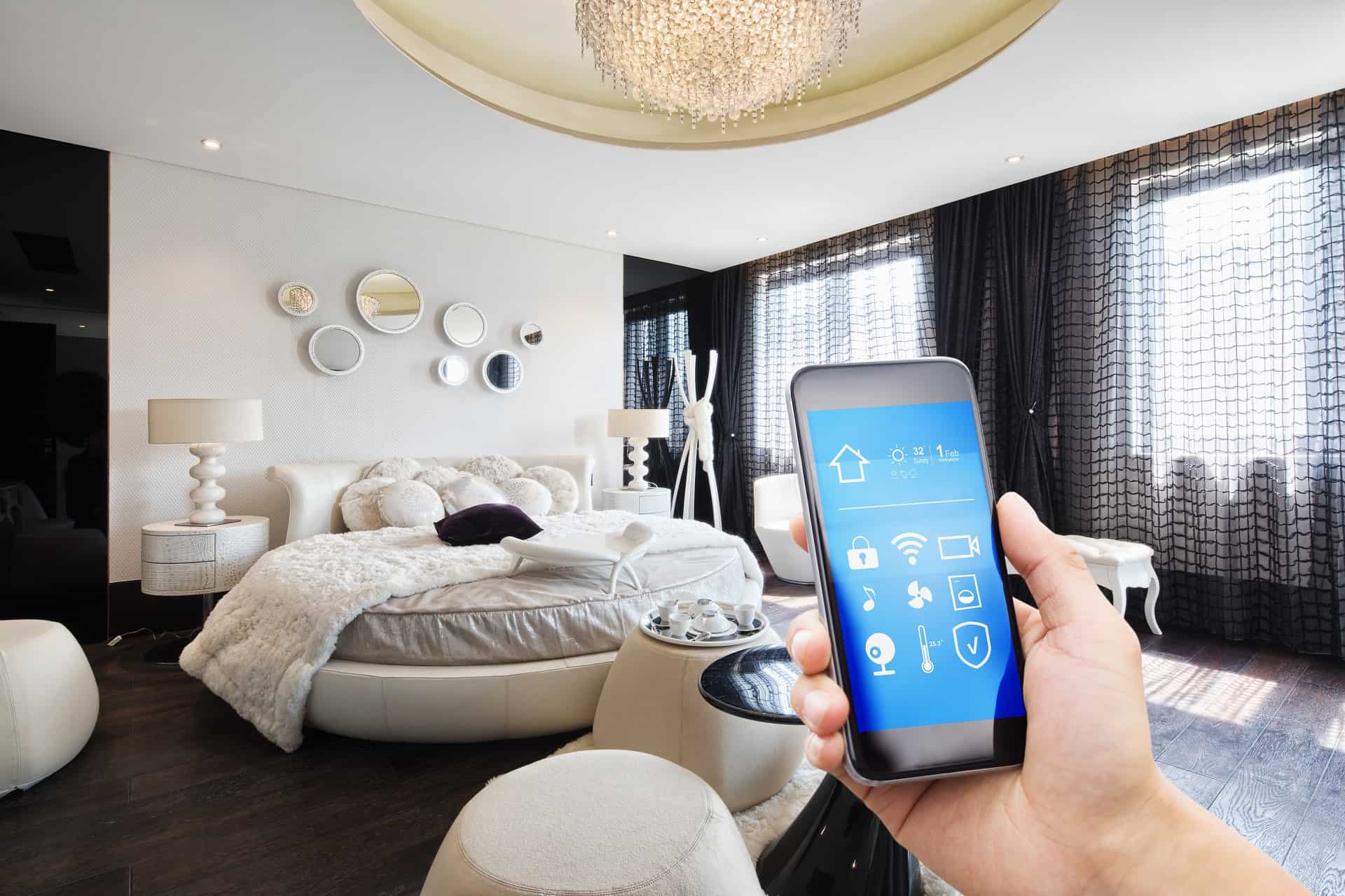Are you looking for ways to save money with your smart home setup? In this post, we’ll go over the smart home devices that you’ll want to look at using if you are looking to save money. There are many different smart home devices out there that can both save you money and make your life easier. So keep reading, and learn which smart home devices to invest in now to save money through the years.
Smart Thermostat
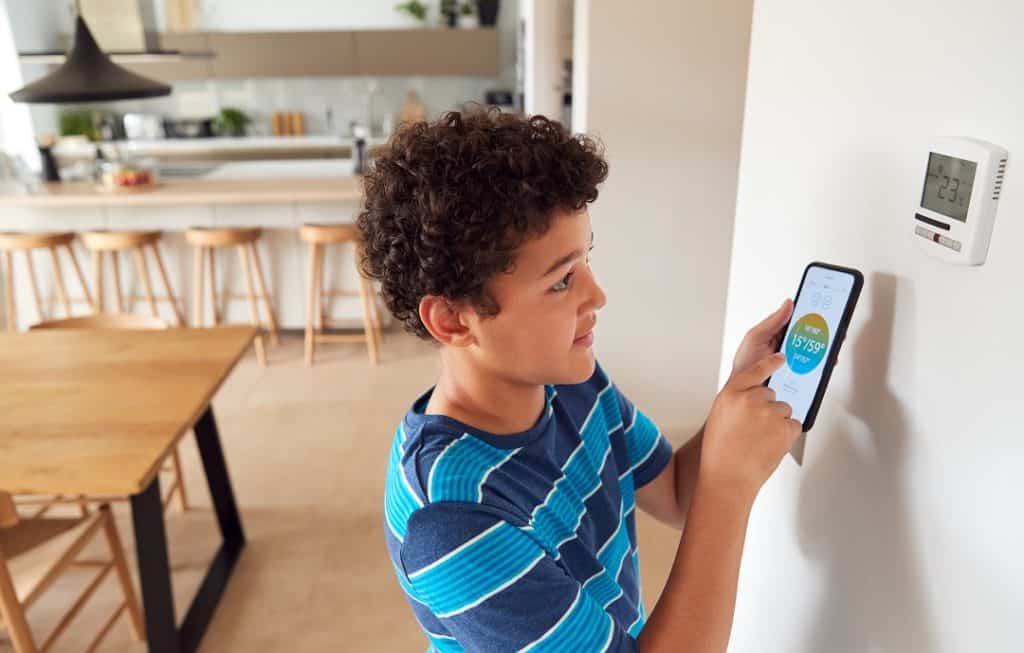
Smart thermostats are one of the main smart home devices for saving energy. You can save quite a substantial amount of money by installing a smart thermostat! Smart thermostats learn from your daily routine and can adjust heating and cooling settings automatically to keep you comfortable. They can also be remotely controlled by your smartphone, allowing you to adjust your home temperature from anywhere. This lets you easily adjust the thermostat while you’re on vacation if you forget before you leave. Smart thermostats can also use geofencing – a feature where they track your phone’s GPS to determine when you are close to returning home. This lets them adjust the temperature in time for you to get home, but save money while you’re away. Smart thermostats can also give you a detailed energy usage report which lets you see exactly how much energy you are consuming with your air conditioner and heater, and how much money you can save by adjusting the temperature!
Energy Monitoring Systems
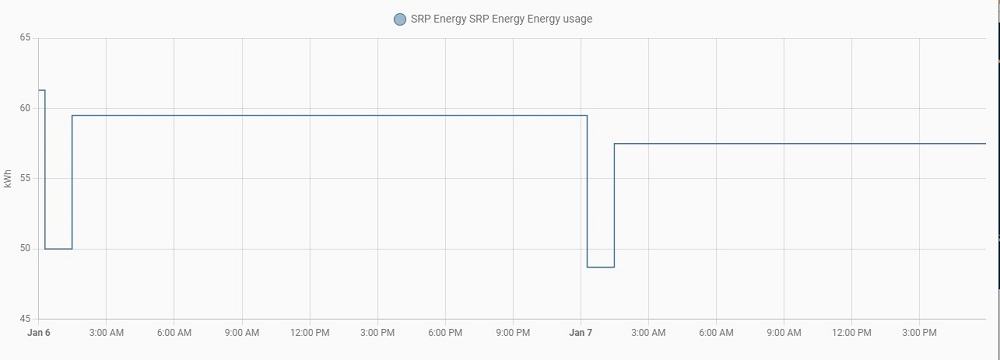
Energy monitoring systems can be a bit more complex than a smart thermostat, but they are another big way to reduce your energy use and save money. Energy monitoring systems can either be a single device on your main energy meter, or something that imports data from your energy meter. We use Home Assistant to import our energy usage info directly from our energy company. Energy monitoring systems can also be a collection of smart plugs, smart devices, smart outlets, and more that all report their energy use. These systems provide real-time data on the energy consumption of various household appliances, allowing you to identify which devices are using the most energy and when. This lets you make informed decisions about your energy use, such as pinpointing and reducing unnecessary power consumption or scheduling the use of high-energy appliances during off-peak hours. Many energy monitors also offer historical data analysis, helping to track and compare energy usage over time. By highlighting energy consumption patterns and offering actionable insights, these systems not only help in reducing monthly utility bills but also encourage a more environmentally conscious lifestyle. In an age where energy conservation is key to sustainability, energy monitoring systems serve as an essential component for any eco-friendly smart home.
Smart Lights
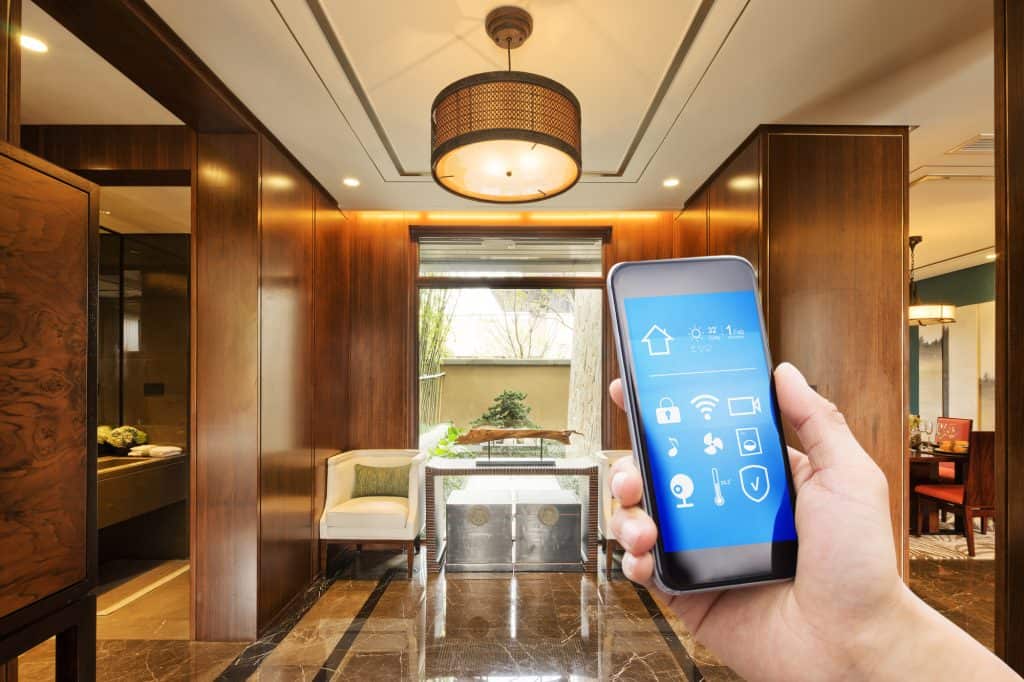
Smart lights are an important part of an energy efficient house. They significantly reduce energy consumption while offering enhanced convenience and ambiance. Smart lights typically incorporate LED bulbs, which are far more efficient than traditional incandescent or fluorescent lights ( plus, no mercury! ). Smart lights can be programmed to turn off automatically at a certain time or when a room is unoccupied, dimmed to conserve energy, or adjusted according to natural light levels in the home, ensuring that electricity is not wasted. Smart lights ability to be controlled remotely via smartphone apps or integrated with other smart home systems ( like motion sensors ) further enhances their energy-saving potential. By allowing homeowners to customize lighting schedules and preferences, smart lighting not only creates a personalized living environment but also plays a crucial role in reducing electricity bills and conserving energy, making it an important component of modern, eco-conscious living.
Smart Outlets and Plugs
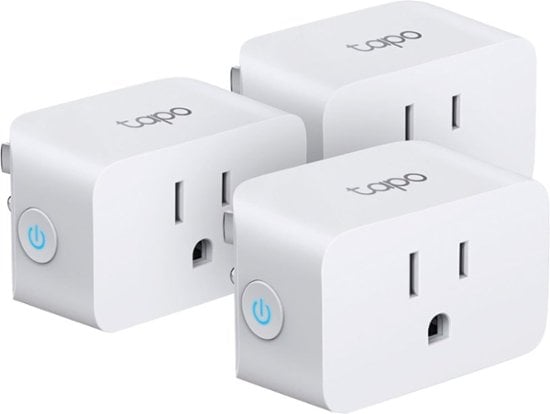
Smart plugs and outlets ( like the TP-Link Tapo Smart Plugs at Best Buy ) are a simple yet highly effective solution for improving energy efficiency in modern homes. By giving you the ability to control and automate the operation of virtually any electronic device, smart outlets and plugs play a crucial role in reducing unnecessary power consumption. Devices that are typically left on standby mode, like TVs, gaming consoles, or kitchen appliances, can be turned off completely when not in use or overnight, thus eliminating ‘phantom’ energy waste. These smart devices can be programmed to operate on schedules, ensuring that power is used only when needed. The ability to remotely control these outlets through smartphone apps adds an extra layer of convenience, allowing users to turn off appliances even when they are away from home. By providing such precise control over household electronics, smart plugs and outlets not only contribute to significant reductions in energy bills but also help in building a more energy-conscious lifestyle.
Smart Window Coverings

Smart window coverings; automated blinds or curtains, offer a touch of luxury while increasing energy efficiency in homes. These advanced systems can adjust themselves automatically based on time of day, sunlight exposure, or even in response to commands from a smart home system. By controlling the amount of natural light and heat entering a room, they play a key role in regulating indoor temperatures. During summer, they can close to block out intense sunlight, reducing the need for air conditioning. In winter, they can open to let in warm sunlight, reducing the use of heating systems. This natural temperature regulation not only leads to significant energy savings but also adds to the comfort and convenience of living spaces. One recent study on automated shades found that they saved up to 13% in electricity costs and 3.4% in gas costs! Additionally, with options for remote control via smartphones or integration with other smart home devices, smart window coverings blend seamlessly into the modern, energy-conscious home, combining functionality with eco-friendly living.
Smart Water Heaters
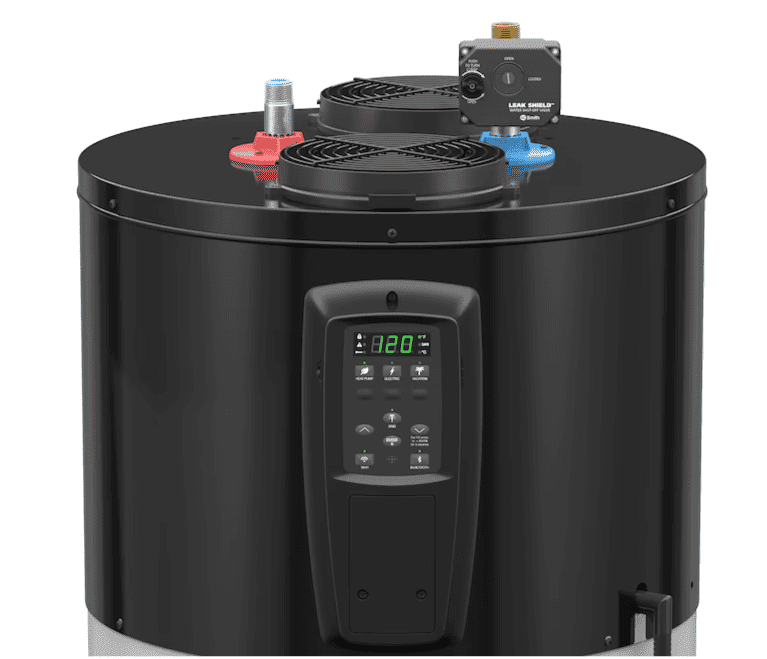
Smart water heaters like this A.O. Smith model from Lowes represent a significant advancement in home energy efficiency, offering both convenience and substantial energy savings. Smart water heaters come with intelligent features that allow for more precise control over water heating. Unlike traditional models, smart water heaters can learn your usage patterns and schedule, heating water only when needed, thus reducing unnecessary energy consumption. Many models also offer the ability to remotely adjust temperatures and schedules via a smartphone app, providing the convenience of controlling your water heating from anywhere. This is particularly useful for adjusting settings when away from home, preventing energy waste. Additionally, some smart water heaters can integrate with other smart home systems for even greater efficiency, such as only heating water when home energy usage is low or power rates are low. By optimizing water heaters and providing detailed insights into usage patterns, smart water heaters not only help in cutting down on utility bills but also contribute to a more sustainable, energy-conscious household.
